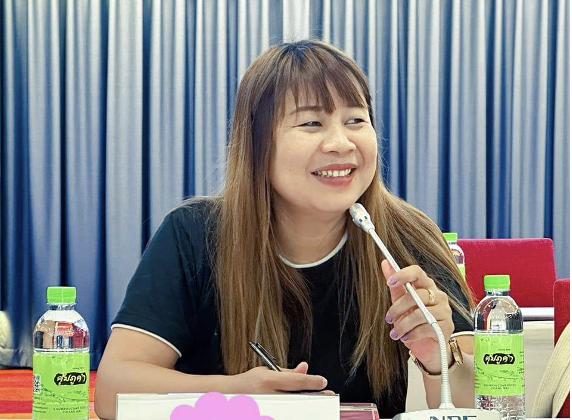An interview with Maw Pareh Myar, General Secretary-2 of KNWO about the current situation of Karenni Internally Displaced People (IDPs).
After the military coup in 2021, among the civilian population, women, children and the elderly are like hostages of war, said in a statement by the Karenni National Women’s Association (KNWO).
The Network Media Group (NMG) interviewed Maw Pareh Myar, General Secretary-2 of KNOW about the current situation of Karenni IDPs.
Q: Since the military coup, nearly 500 civilians have reportedly died in Karenni State. Among them, how many women and children died? Do you have a separate list?
A: We have not compiled the list of women and children separately. We have summary data on female IDPs. We are not able to collect the detailed information due to security reasons and transportation difficulties.
Q: Women and children were among the civilian deaths during the battle. How are they affected and killed? What are the difficulties?
A: As I mentioned earlier, women, the elderly and children are like the hostages of war. Some victims were killed by shelling and bombardments as they could not run away. The cases like the battle to capture Loikaw, for instance, the men could easily run away. Women had more burdens as they had to flee fighting with their children and create meals. They were not convenient to run away and unable to flee to safety. They were hurt by the constant firing of heavy shells.
Q: Who is responsible for these damages? What kinds of crimes did they commit?
A: These are war crimes. After that, there are targeted attacks on civilians, and this is a violation of the Geneva Convention of the existence of a human being and genocide against our ethnic. There would be no deaths of innocent people if the military council which is mainly responsible for it, did not carry out bombardments of public areas. It can be said that the military council is especially responsible for such things. Although ethnic areas especially have long been facing it for many years, they have been exempted from punishment for their war crimes until today without actions taken by international. They continue to commit the crimes. It is assumed that they commit the crimes at their will.
Q: What is needed to take action against those who commit such crimes? What kind of data is needed?
A: In my view, in order to take action, it is important that the perpetrators themselves be held accountable and punished. On the other hand, the international community urgently needs to take actions against the crimes committed by them, including violations of the laws in this country and international treaties signed by Myanmar. On the one hand, in my view, the process of filing the case will be more successful and smoother if not only our community but also the organizations working for justice make collective efforts to gather sufficient evidence for the action.
Q: As a last question, Thailand on December 3 said that it would accept refugees along the Myanmar border. What are the latest situations on the ground about the acceptance of refugees sheltering on the Thai-Myanmar border including Karenni border?
A: As a matter of fact, the Thai news report is different from the ground situations. The fact that it will accept the refugees after the delivery of humanitarian aid a little bit goes against the situations on the ground. For instance, the IDPs along the border are forced to return to their own territory in various ways. However, it runs counter to the news report.
Q: If the Thai government is to accept the refugees, how do women and children want to get accepted?
A: If Thailand wants to accept refugees in good faith, it needs to create a place for pregnant women, children under five and the elderly. The main place is the Thai-Karenni border. It should be a place for them to be able to easily return to their own state sometimes in the future. For instance, it is inconvenient for them to relocate to distant places instead of Tachilek and Karenni border. It is safer for the said groups. It should be a good place for them to live physically and mentally. For health, cesarean birth and surgery for chronic diseases. They want to stay in places with easy access to health, education and water. Even if not all of them are 100% perfect, I think a healthy environment is also important for the focus groups here.
Sent by NMG

